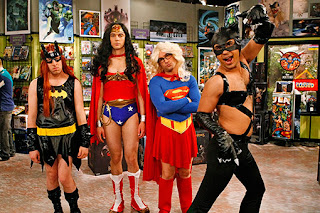What are you wearing? I'm not actually looking for a response, but take a look at the clothing you're wearing or an object near you. In what country was it made? Who made it?
Chances are, it wasn't made in Canada, and probably not the United States either. The sweater I'm wearing was made in Bangladesh where the average income is 2,200 USD.
Most likely what you're wearing was manufactured someplace like China or Bangladesh etc. Any place but HERE.
WHY?
IT COSTS TOO MUCH TO PRODUCE HERE.
The world economy revolves around a system called free trade, which was introduced to the world by the British.
Free trade is when a country can export it's goods to another country without the cost of tariffs.
Tariffs are taxes that countries use to tax goods imported into a country to ensure the country is being fairly compensated for the trade, and to protect the countries economy by encouraging its own manufacturing and development; this is called fair trade.
Today this free trade system allows huge corporations to ship their mass produced goods to a country for cheaper than the country can produce itself. What ensues is the economic collapse of that country, ex:Jamaica, where farmers couldn't produce milk, bananas and other crops for less than international corporations could. Using a system of tariffs would have protected Jamaica's economy, raising taxes on imported goods so their own goods could remain competitive in the countries own market.
However, In order to stay afloat, that country seeks a loan, provided from the IMF-International Monetary Fund or the World Bank. The loan is high in interest and short in the time it must be paid. The end result is a bankrupt country with a poverty stricken population. The inflation caused from the loans devalues the nations currency even further, reducing its purchasing power. Eventually, it is realized the debt cannot fully be repaid. So the country will sell it's oil for cheap, or let a foreign military base be set up in the country or give another 'deal' to the country or organization which provided the loan.
This is happening in Greece, and will happen in Greece. This is what will happen in the United States (not until after the presidential election, of course), and subsequently Canada. Thanks to the system of free trade, combined with the invention of the corporation, a new form of empire has emerged unlike the world has ever seen before.
Don't forget that in the big scheme of time, the corporation is a relatively new idea, and empires of the past ruled based on a geographical region, a culture, and a caesar or a king.
Abraham Lincoln once wrote:
"I see in the near future a crisis approaching that unnerves me and causes me to tremble for the safety of my country. . . . corporations have been enthroned and an era of corruption in high places will follow, and the money power of the country will endeavor to prolong its reign by working upon the prejudices of the people until all wealth is aggregated in a few hands and the Republic is destroyed."
Kind of like the Occupy Wall Streeters "We are the 99% slogan".
Thomas Jefferson also knew of the banking powers threat.
"If the American people ever allow private banks to control the issue of currency, first by inflation, then by deflation, the banks and corporations that will grow up around them will deprive the people of all property until their children wake up homeless on the continent their fathers conquered."
Thomas Jefferson
But all the bankers care about is the money and power.
"Give me control of a nations money supply, and I care not who makes it’s laws."
Amschel Rothchild, founder of the Rothchild banking dynasty.
What we are seeing is an ever emerging corporatocracy through the increasing involvement of governments and corporations collaborating together to serve their own self interest, and saying to hell with the people. This is also known as fascism. In a nutshell, this is what happened in Nazi Germany and Mussolini's Italy before WW2.
Except this empire has no flag, no constitution, no one to answer to but itself and is global in it's scheme. It's an empire where the only vote is power, and only those with power can vote. We no longer live in a world of countries and ideologies any more. All there is, is Exon, IBM, AT&T, Google. These are the nations that govern the world today.
And the goal is to increase profits. While countries, and the people wallow in an ever lasting un-payable debt by the moneychangers.
Slavery exists today. It's what made that sweater you're wearing.








